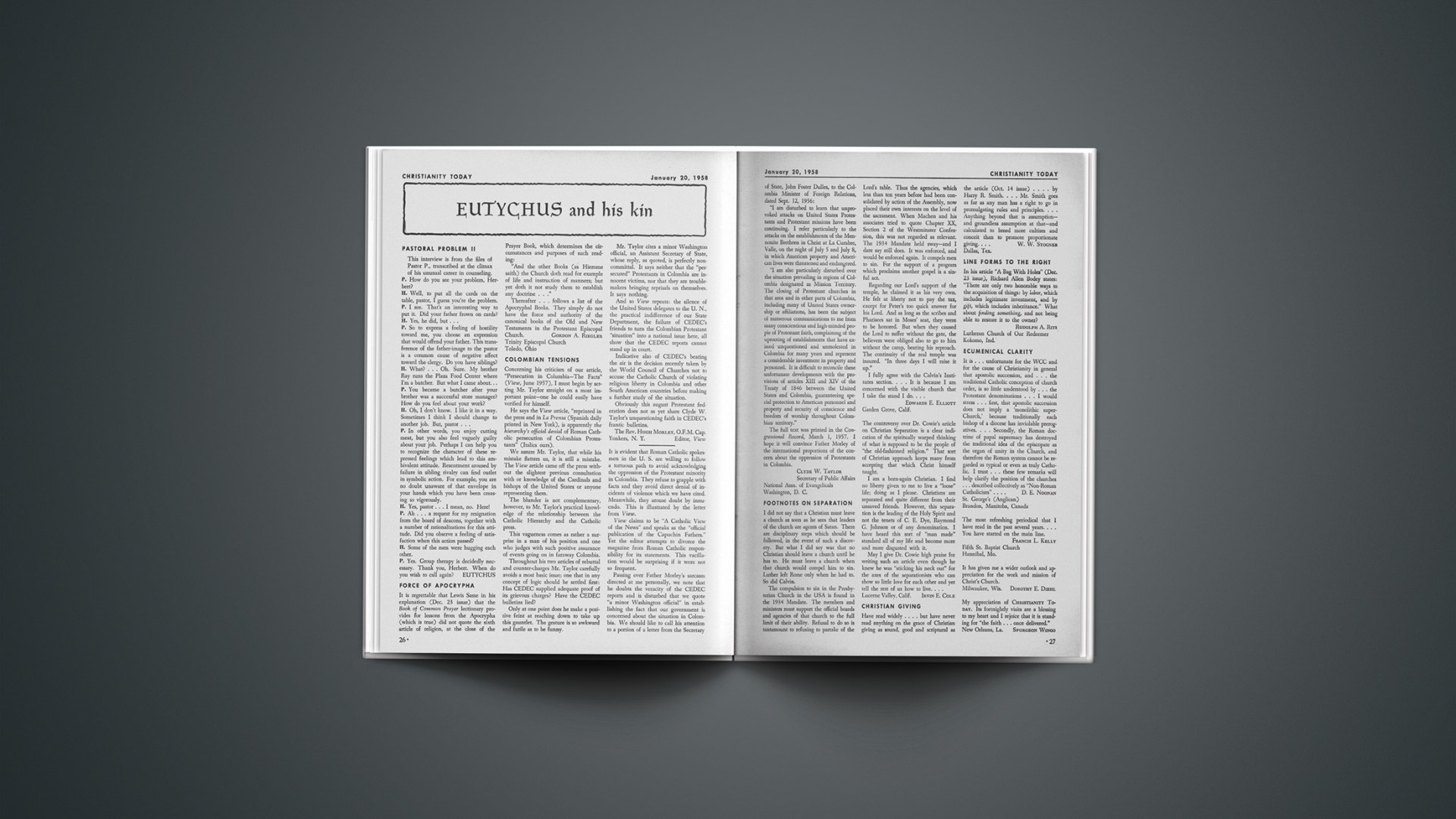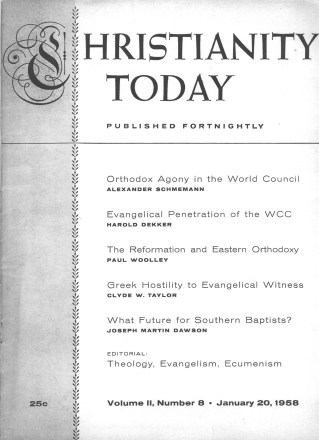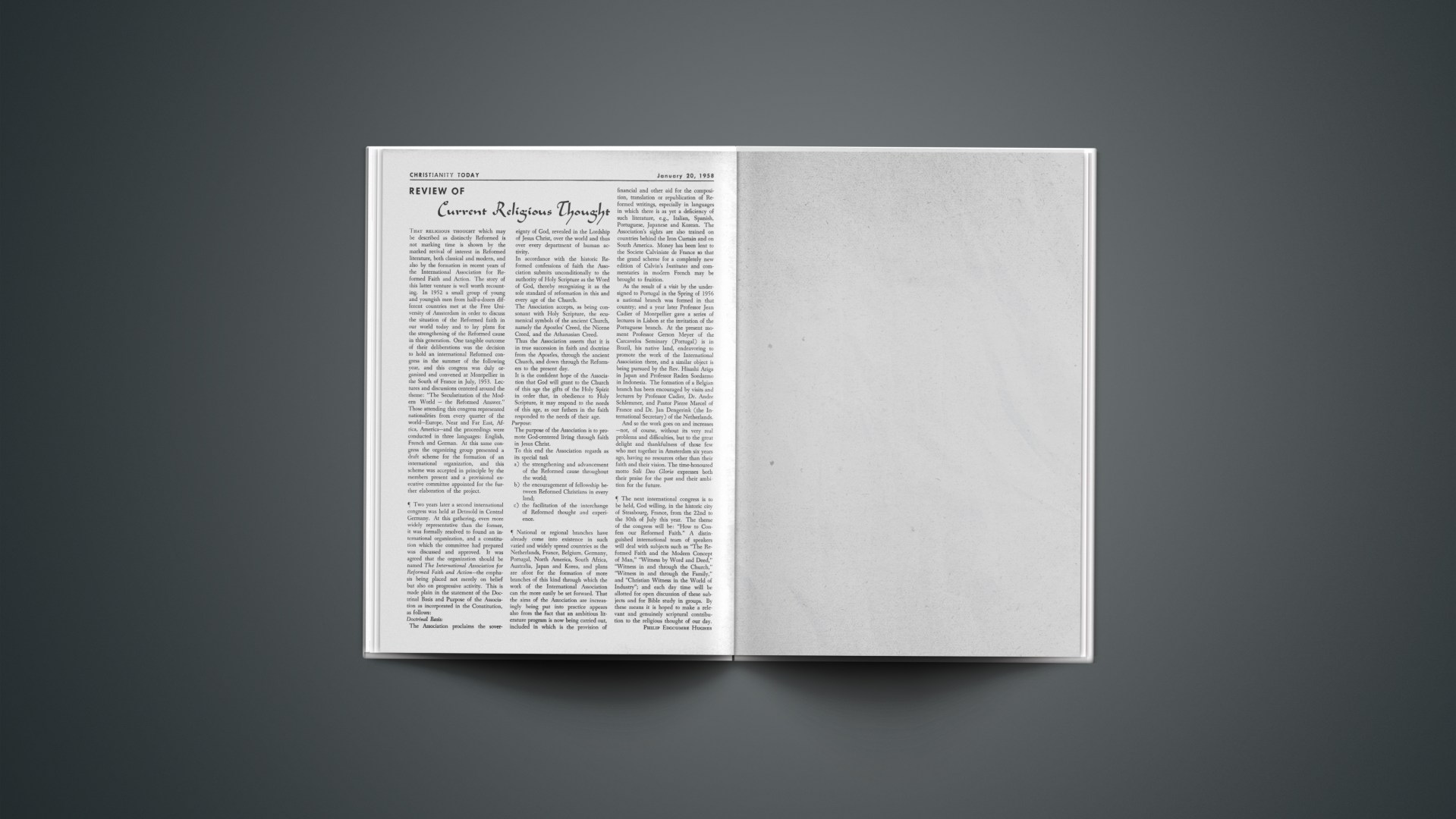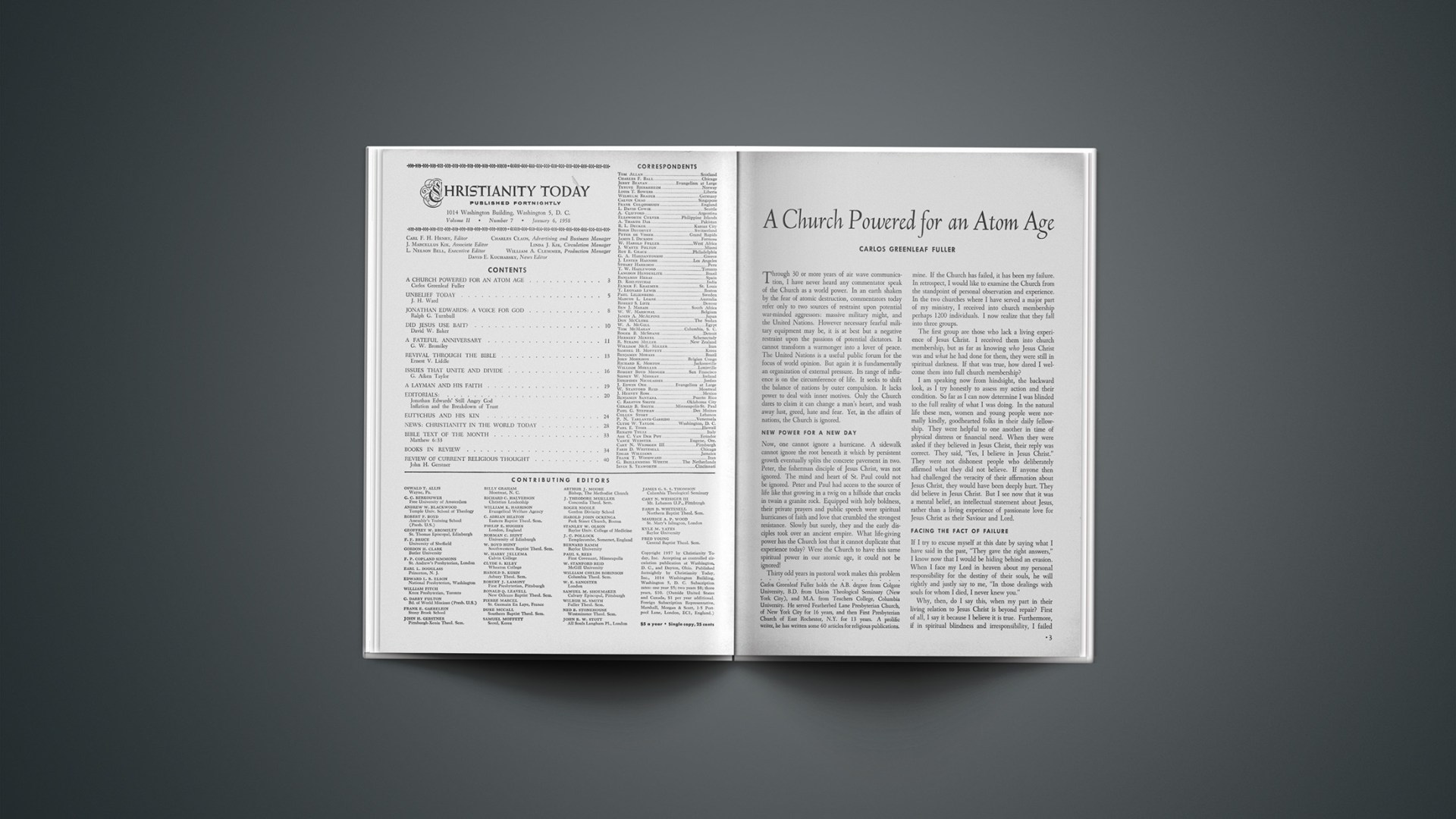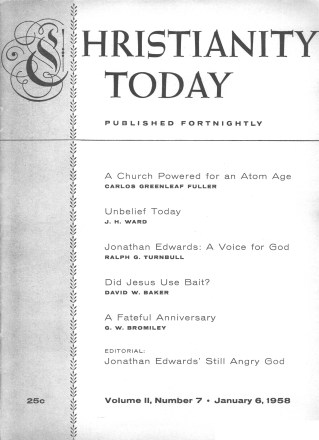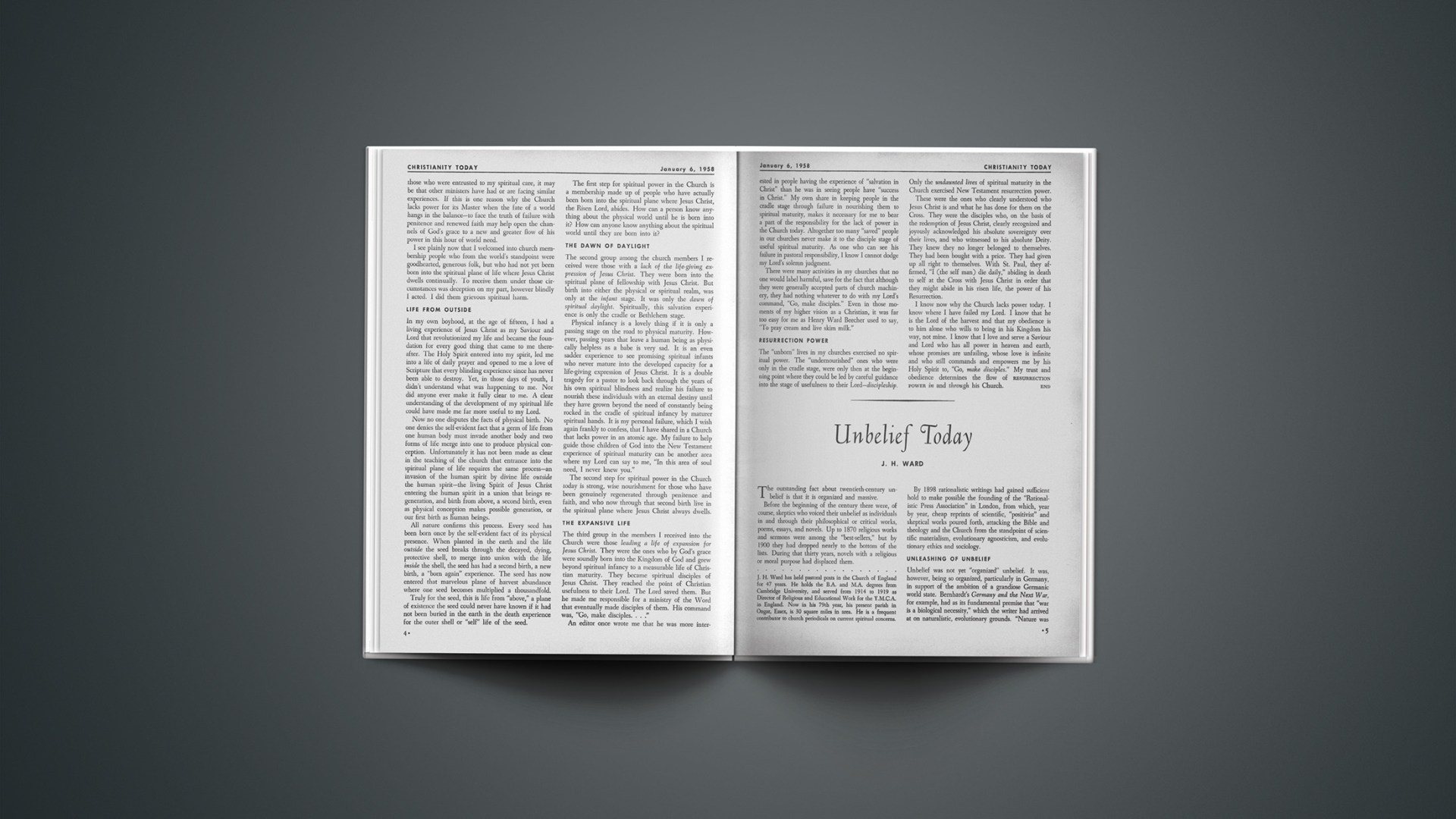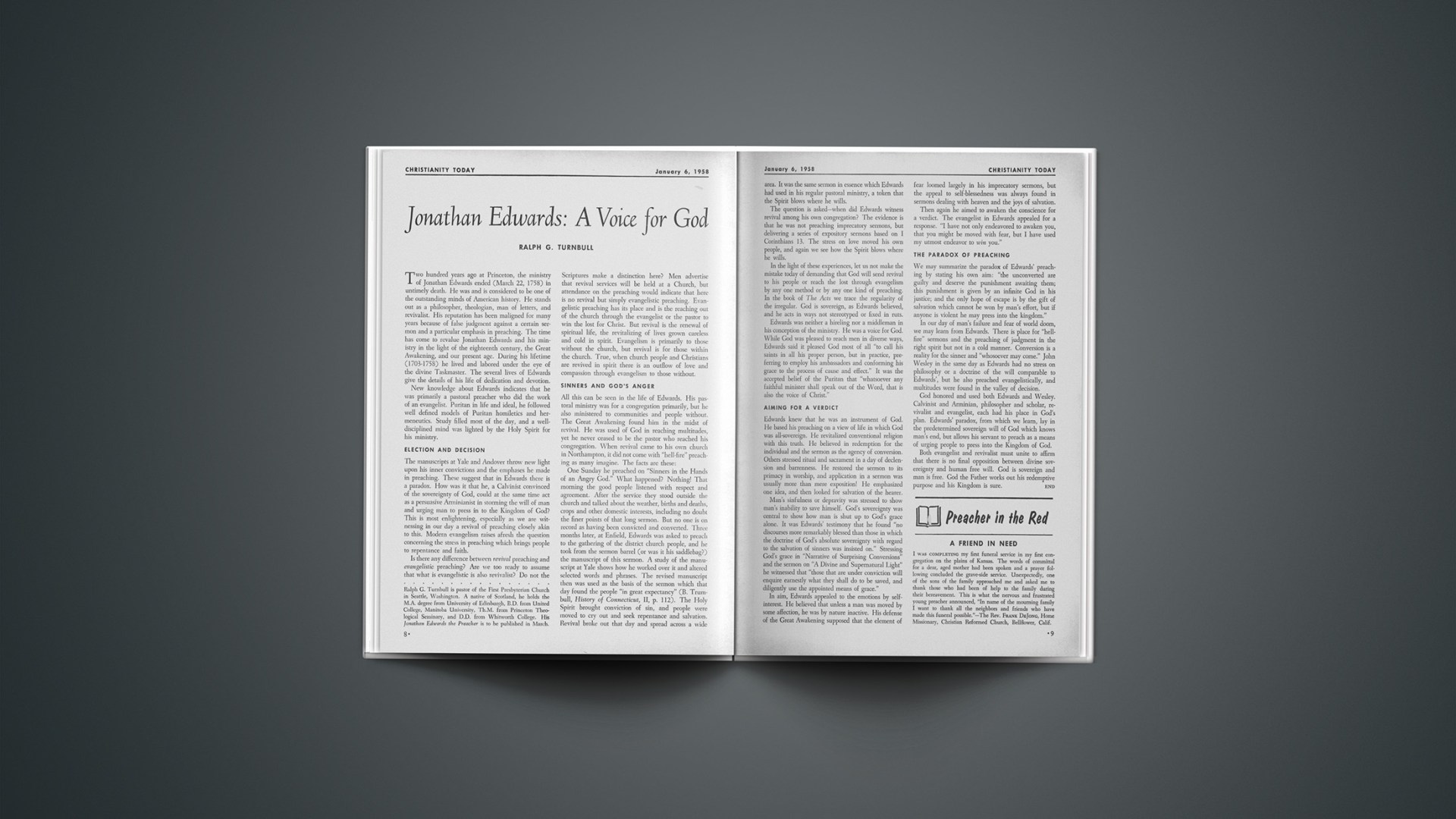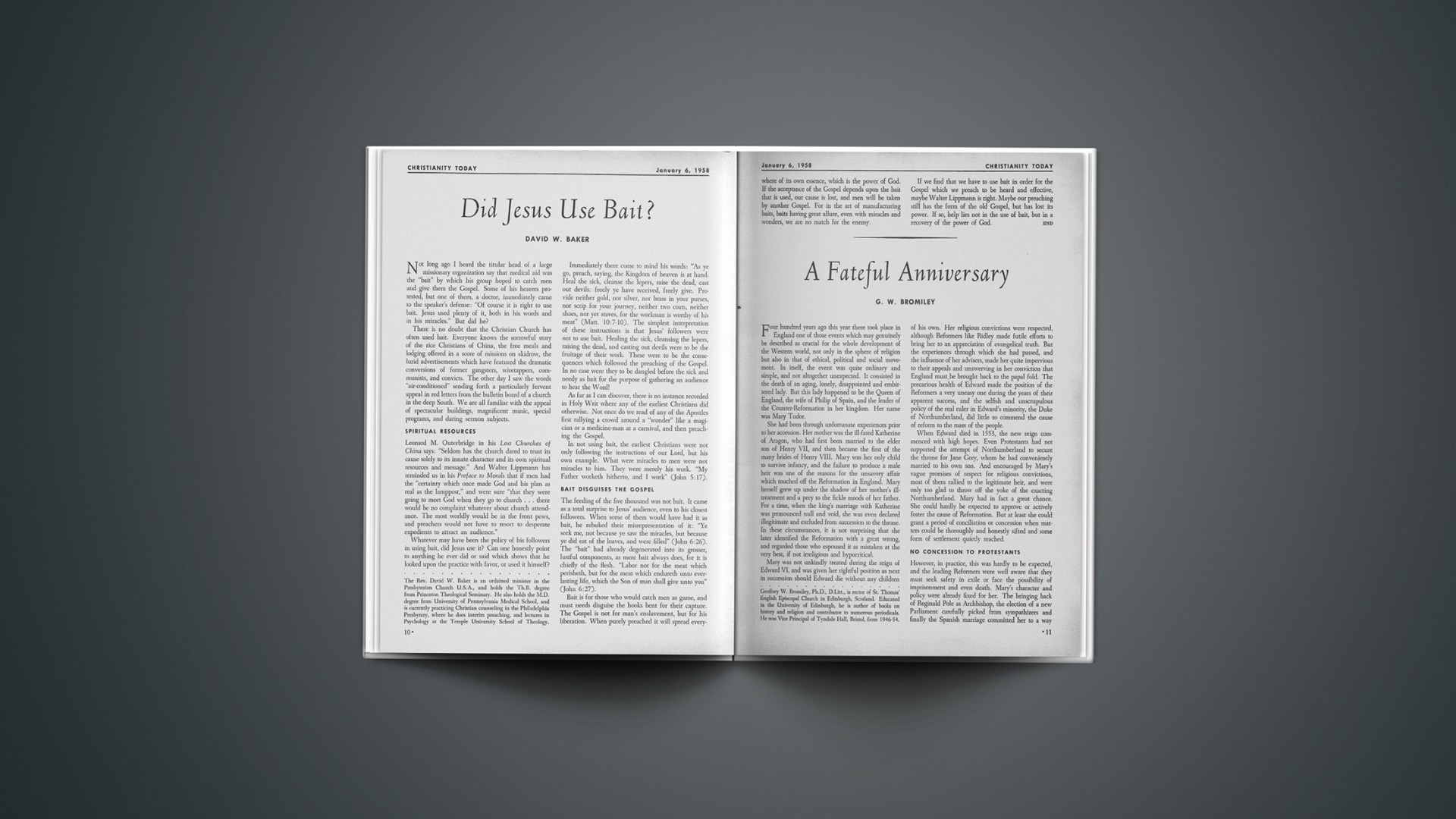PASTORAL PROBLEM II
This interview is from the files of Pastor P., transcribed at the climax of his unusual career in counseling.
P. How do you see your problem, Herbert?
H. Well, to put all the cards on the table, pastor, I guess you’re the problem.
P. I see. That’s an interesting way to put it. Did your father frown on cards?
H. Yes, he did, but …
P. So to express a feeling of hostility toward me, you choose an expression that would offend your father. This transference of the father-image to the pastor is a common cause of negative affect toward the clergy. Do you have siblings? H. What?… Oh. Sure. My brother Ray runs the Plaza Food Center where I’m a butcher. But what I came about.…
P. You became a butcher after your brother was a successful store manager? How do you feel about your work?
H. Oh, I don’t know. I like it in a way. Sometimes I think I should change to another job. But, pastor …
P. In other words, you enjoy cutting meat, but you also feel vaguely guilty about your job. Perhaps I can help you to recognize the character of these repressed feelings which lead to this ambivalent attitude. Resentment aroused by failure in sibling rivalry can find outlet in symbolic action. For example, you are no doubt unaware of that envelope in your hands which you have been creasing so vigorously.
H. Yes, pastor … I mean, no. Here!
P. Ah … a request for my resignation from the board of deacons, together with a number of rationalizations for this attitude. Did you observe a feeling of satisfaction when this action passed?
H. Some of the men were hugging each other.
P. Yes. Group therapy is decidedly necessary. Thank you, Herbert. When do you wish to call again?
EUTYCHUS
FORCE OF APOCRYPHA
It is regrettable that Lewis Sasse in his explanation (Dec. 23 issue) that the Book of Common Prayer lectionary provides for lessons from the Apocrypha (which is true) did not quote the sixth article of religion, at the close of the Prayer Book, which determines the circumstances and purposes of such reading:
“And the other Books (as Hierome saith) the Church doth read for example of life and instruction of manners; but yet doth it not study them to establish any doctrine …”
Thereafter … follows a list of the Apocryphal Books. They simply do not have the force and authority of the canonical books of the Old and New Testaments in the Protestant Episcopal Church.
Trinity Episcopal Church
Toledo, Ohio
COLOMBIAN TENSIONS
Concerning his criticism of our article, “Persecution in Columbia—The Facts” (View, June 1957), I must begin by setting Mr. Taylor straight on a most important point—one he could easily have verified for himself.
He says the View article, “reprinted in the press and in La Prensa (Spanish daily printed in New York), is apparently the hierarchy’s official denial of Roman Catholic persecution of Colombian Protestants” (Italics ours).
We assure Mr. Taylor, that while his mistake flatters us, it is still a mistake. The View article came off the press without the slightest previous consultation with or knowledge of the Cardinals and bishops of the United States or anyone representing them.
The blunder is not complementary, however, to Mr. Taylor’s practical knowledge of the relationship between the Catholic Hierarchy and the Catholic press.
This vagueness comes as rather a surprise in a man of his position and one who judges with such positive assurance of events going on in faraway Colombia.
Throughout his two articles of rebuttal and counter-charges Mr. Taylor carefully avoids a most basic issue; one that in any concept of logic should be settled first: Has CEDEC supplied adequate proof of its grievous charges? Have the CEDEC bulletins lied?
Only at one point does he make a positive feint at reaching down to take up this gauntlet. The gesture is so awkward and futile as to be funny.
Mr. Taylor cites a minor Washington official, an Assistant Secretary of State, whose reply, as quoted, is perfectly non-committal. It says neither that the “persecuted” Protestants in Colombia are innocent victims, nor that they are troublemakers bringing reprisals on themselves. It says nothing.
And so View repeats: the silence of the United States delegates to the U. N., the practical indifference of our State Department, the failure of CEDEC’s friends to turn the Colombian Protestant “situation” into a national issue here, all show that the CEDEC reports cannot stand up in court.
Indicative also of CEDEC’s beating the air is the decision recently taken by the World Council of Churches not to accuse the Catholic Church of violating religious liberty in Colombia and other South American countries before making a further study of the situation.
Obviously this august Protestant federation does not as yet share Clyde W. Taylor’s unquestioning faith in CEDEC’s frantic bulletins.
The Rev. HUGH MORLEY, O.F.M. Cap.
Editor, View
Yonkers, N. Y.
It is evident that Roman Catholic spokesmen in the U. S. are willing to follow a tortuous path to avoid acknowledging the oppression of the Protestant minority in Colombia. They refuse to grapple with facts and they avoid direct denial of incidents of violence which we have cited. Meanwhile, they arouse doubt by innuendo. This is illustrated by the letter from View.
View claims to be “A Catholic View of the News” and speaks as the “official publication of the Capuchin Fathers.” Yet the editor attempts to divorce the magazine from Roman Catholic responsibility for its statements. This vacillation would be surprising if it were not so frequent.
Passing over Father Morley’s sarcasm directed at me personally, we note that he doubts the veracity of the CEDEC reports and is disturbed that we quote “a minor Washington official” in establishing the fact that our government is concerned about the situation in Colombia. We should like to call his attention to a portion of a letter from the Secretary of State, John Foster Dulles, to the Colombia Minister of Foreign Relations, dated Sept. 12, 1956:
“I am disturbed to learn that unprovoked attacks on United States Protestants and Protestant missions have been continuing. I refer particularly to the attacks on the establishments of the Mennonite Brethren in Christ at La Cumbre, Valle, on the night of July 5 and July 8, in which American property and American lives were threatened and endangered.
“I am also particularly disturbed over the situation prevailing in regions of Colombia designated as Mission Territory. The closing of Protestant churches in that area and in other parts of Colombia, including many of United States ownership or affiliations, has been the subject of numerous communications to me from many conscientious and high-minded people of Protestant faith, complaining of the uprooting of establishments that have existed unquestioned and unmolested in Colombia for many years and represent a considerable investment in property and personnel. It is difficult to reconcile these unfortunate developments with the provisions of articles XIII and XIV of the Treaty of 1846 between the United States and Colombia, guaranteeing special protection to American personnel and property and security of conscience and freedom of worship throughout Colombian territory.”
The full text was printed in the Congressional Record, March 1, 1957. I hope it will convince Father Morley of the international proportions of the concern about the oppression of Protestants in Colombia.
Secretary of Public Affairs
National Assn. of Evangelicals
Washington, D. C.
FOOTNOTES ON SEPARATION
I did not say that a Christian must leave a church as soon as he sees that leaders of the church are agents of Satan. There are disciplinary steps which should be followed, in the event of such a discovery. But what I did say was that no Christian should leave a church until he has to. He must leave a church when that church would compel him to sin. Luther left Rome only when he had to. So did Calvin.
The compulsion to sin in the Presbyterian Church in the USA is found in the 1934 Mandate. The members and ministers must support the official boards and agencies of that church to the full limit of their ability. Refusal to do so is tantamount to refusing to partake of the Lord’s table. Thus the agencies, which less than ten years before had been consolidated by action of the Assembly, now placed their own interests on the level of the sacrament. When Machen and his associates tried to quote Chapter XX, Section 2 of the Westminster Confession, this was not regarded as relevant. The 1934 Mandate held sway—and I dare say still does. It was enforced, and would be enforced again. It compels men to sin. For the support of a program which proclaims another gospel is a sinful act.
Regarding our Lord’s support of the temple, he claimed it as his very own. He felt at liberty not to pay the tax, except for Peter’s too quick answer for his Lord. And as long as the scribes and Pharisees sat in Moses’ seat, they were to be honored. But when they caused the Lord to suffer without the gate, the believers were obliged also to go to him without the camp, bearing his reproach. The continuity of the real temple was insured. “In three days I will raise it up.”
I fully agree with the Calvin’s Institutes section.… It is because I am concerned with the visible church that I take the stand I do.…
Garden Grove, Calif.
The controversy over Dr. Cowie’s article on Christian Separation is a clear indication of the spiritually warped thinking of what is supposed to be the people of “the old-fashioned religion.” That sort of Christian approach keeps many from accepting that which Christ himself taught.
I am a born-again Christian. I find no liberty given to me to live a “loose” life; doing as I please. Christians are separated and quite different from their unsaved friends. However, this separation is the leading of the Holy Spirit and not the tenets of C. E. Dye, Raymond G. Johnson or of any denomination. I have heard this sort of “man made” standard all of my life and become more and more disgusted with it.
May I give Dr. Cowie high praise for writing such an article even though he knew he was “sticking his neck out” for the axes of the separationists who can show so little love for each other and yet tell the rest of us how to live.…
Lucerne Valley, Calif.
CHRISTIAN GIVING
Have read widely.… but have never read anything on the grace of Christian giving as sound, good and scriptural as the article (Oct. 14 issue).… by Harry R. Smith.… Mr. Smith goes as far as any man has a right to go in promulgating rules and principles.… Anything beyond that is assumption—and groundless assumption at that—and calculated to breed more cultism and conceit than to promote proportionate giving.…
Dallas, Tex.
LINE FORMS TO THE RIGHT
In his article “A Bag With Holes” (Dec. 23 issue), Richard Allen Bodey states: “There are only two honorable ways to the acquisition of things: by labor, which includes legitimate investment, and by gift, which includes inheritance.” What about finding something, and not being able to restore it to the owner?
Lutheran Church of Our Redeemer
Kokomo, Ind.
ECUMENICAL CLARITY
It is … unfortunate for the WCC and for the cause of Christianity in general that apostolic succession, and … the traditional Catholic conception of church order, is so little understood by … the Protestant denominations … I would stress … first, that apostolic succession does not imply a ‘monolithic super-Church,’ because traditionally each bishop of a diocese has inviolable prerogatives.… Secondly, the Roman doctrine of papal supremacy has destroyed the traditional idea of the episcopate as the organ of unity in the Church, and therefore the Roman system cannot be regarded as typical or even as truly Catholic. I trust … these few remarks will help clarify the position of the churches … described collectively as “Non-Roman Catholicism”.…
St. George’s (Anglican)
Brandon, Manitoba, Canada
The most refreshing periodical that I have read in the past several years.… You have started on the main line.
Fifth St. Baptist Church
Hannibal, Mo.
It has given me a wider outlook and appreciation for the work and mission of Christ’s Church.
Milwaukee, Wis.
My appreciation of CHRISTIANITY TODAY. Its fortnightly visits are a blessing to my heart and I rejoice that it is standing for “the faith … once delivered.”
New Orleans, La.

